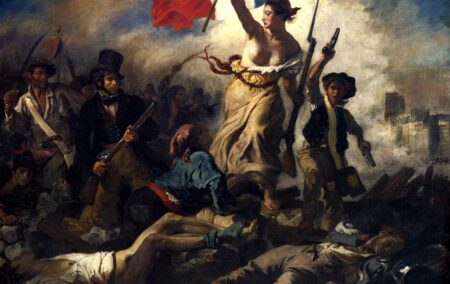“By liberalism I don’t mean the creed of any party or any century. I mean generosity of spirit, a tolerance of others, an attempt to comprehend otherness, a commitment to the rule of law, a high ideal of the worth and dignity of man, a repugnance for authoritarianism and a love of freedom.” – Alan Paton
The primacy of individual freedom above all else, as far as practically possible – this to me is what it means to be a liberal.
Today when one says one is a liberal, people retreat or attack, depending on their understanding of what it means to be a liberal. Naturally, there are many variants of liberalism, but the liberalism I subscribe to is of the classical variety. This places my version of liberalism on the centre right of the political spectrum and it is often misunderstood by many. I would like to clear up any confusion as to what I, and many others, mean when we say ‘I am a liberal’.
It is perhaps best to define classical liberalism in terms of what it is not. What most people seem to call ‘liberalism’ is the American variety of liberalism. American liberalism is placed centre left on the political spectrum and is what is more commonly described as “progressivism”. Liberals did once refer to themselves as progressives, indeed the great South African politician Helen Suzman was the only Member of Parliament (MP) for the Progressive Party for 13 years. However, the term “progressive” has since taken on another meaning entirely and is now used more to describe those whose political views lean towards the left, such as the social justice warrior movement.
American liberalism has come to be accepted as the default meaning of ‘liberalism’. This is due to the influence of the United States (US). It is common knowledge that the US influences the social and political culture of the entire world, and the liberalism that has grown to be dominant in America has also grown to be dominant in much of the rest of the world. This liberalism can more accurately be described as “social liberalism” and is the cousin of social democracy. It is clear that the party that is supposed to be the “liberal” party in American politics, the Democratic Party, has moved more to the left in every election since Barack Obama was the President. As the largest “liberal” movement in the most influential country in the world slid to the left, it dragged the rest of the world with it.
However, it is important to note that the liberals in America do not speak for liberals all over the world. The liberal movement is, and has always been, very broad, but there are certain principles and beliefs that are foundational to liberalism. These include the belief in individual freedom, a free market economy, private property rights, limited government, free speech, the rule of law, freedom of religion, free trade, and so on. This list is not meant to be exhaustive as there are many more liberal principles, but these are what one can loosely call the core beliefs that any individuals who call themselves liberals should hold and promote.
Classical liberalism has its roots in the Whig Party of the United Kingdom (UK), and some of the founding fathers of this school of thought include John Stuart Mill, Adam Smith, David Hume, Edmund Burke and John Locke. The Whigs were initially opposed to the Conservatives (also called the Tories) in the UK. Later the Whig Party became the new Liberal Party after merging with the Peelites and others in the 1850s. A later split saw the formation of the Liberal Unionist Party. The Liberal Unionist Party then later merged with the Tories to become the modern-day Conservative Party and it is for this reason that Conservative beliefs in the UK largely align with classical liberal beliefs.
It is this latter form of liberalism, the classical variety, that I am referring to when I say I am a liberal. This kind of liberal is often described as “blue blooded” meaning one that believes in the foundational liberal principles as formulated by the aforementioned forefathers of liberalism.
There is a tendency among some who call themselves liberal to cast the net of liberalism too wide, and stray outside these principles. While liberalism makes room for a broad spectrum of beliefs, it is not without bounds. In order for our principles to guide our actions we must first be clear about what exactly our principles are, because unfortunately the classical liberal manor cannot be a home to everyone.
If you like what you have just read, support the Daily Friend

